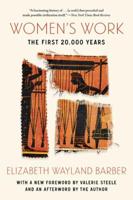Publisher's Synopsis
Armed with only a telescope, a watch, and a notebook he retrieved from a dead soldier, William Howard Russell spent twenty-two months reporting from the trenches for the Times of London during the Crimean War. A novice in a new field of journalism -- war reporting -- when he first set off for Crimea in 1854, the young Irishman returned home a veteran of three bloody battles, having survived the siege of Sebastopol and watched a colleague die of cholera. Russell's fine eye for detail electrified readers, and his remarkably colourful and hugely significant accounts of battles provided those at home -- for the first time ever -- with a realistic picture of the brutality of war. The Crimean War, originally published in 1856 under the title The Complete History of the Russian War, presents a selection of Russell's dispatches -- as well as those of other embedded reporters -- providing a ground-eye view of the conflict as depicted in British newspapers.
Fought on the southern tip of the Crimea from 1853 to 1856, the Crimean War raged on far longer than either side expected -- largely because of mismanagement and disease: more soldiers died from cholera, typhus, typhoid, dysentery, and scurvy than battle wounds. Russell's biting criticisms of incompetent military authorities and an antiquated military system contributed to the collapse of the contemporary ruling party in Britain. In his reports, Russell wrote extensively about inept medical care for the wounded, which he termed ""human barbarity."" Thanks to compelling accounts by Russell and others, authorities allowed Florence Nightingale to enter the war zone and nurse troops back to health.
The Crimean War contains reports from military men who acted as part-time reporters, articles by professional journalists, and letters from others at the front that newspapers back home later published. Rapidly pulled together by American publisher John G. Wells, the volume presents a fascinating contemporary analysis of the war by those on the ground.
This reissue offers a new introduction by Angela Michelli Fleming and John Maxwell Hamilton that places these reports in context and highlights the critical role they played during a pivotal point in European history. The first first-hand accounts of the realities of war, these dispatches set the tone for future independent war reporting.










